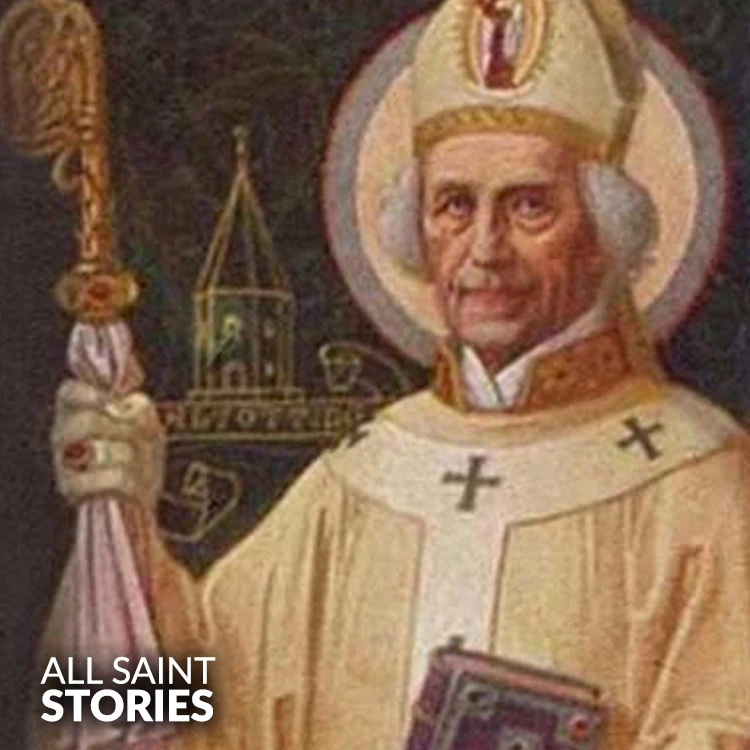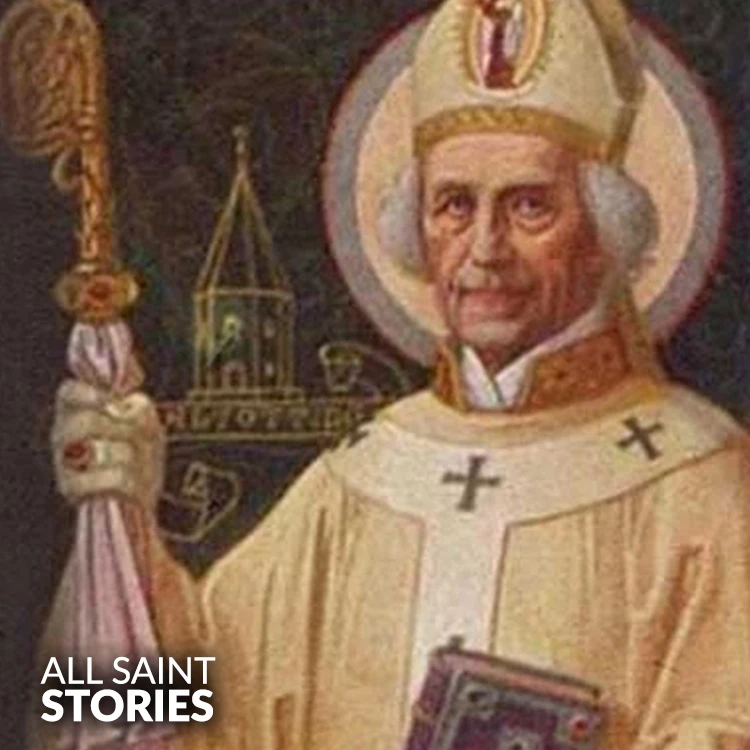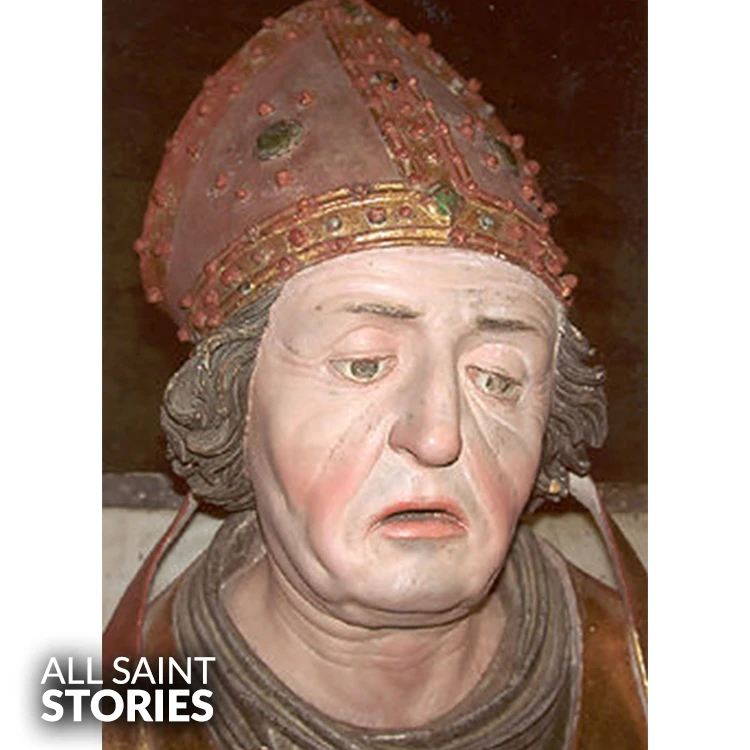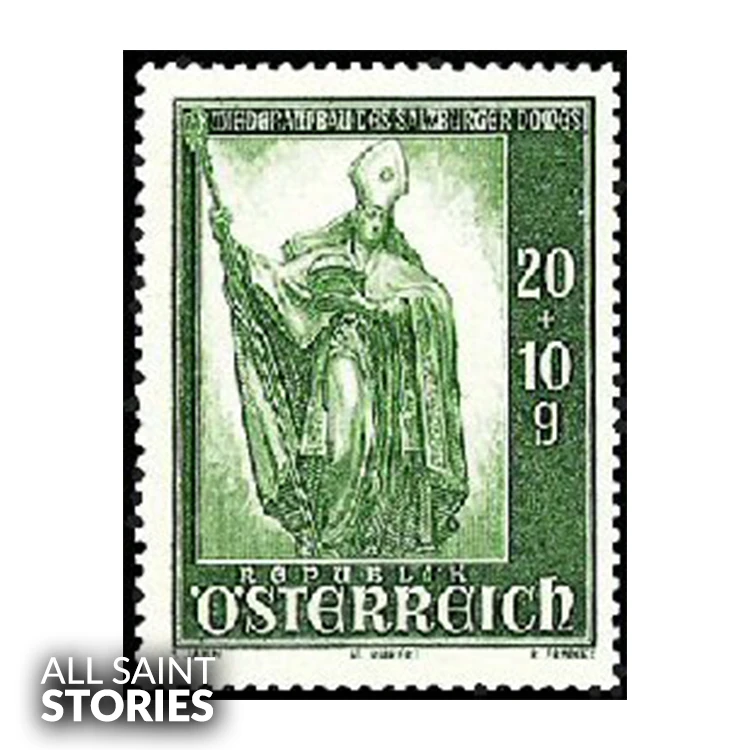St. Rupert, faithful bishop and apostle to the people of Austria, help us to be courageous in spreading the Gospel with wisdom and love. May we, like you, be builders of faith and peace in our communities. Intercede for us that we may serve God faithfully in all we do. Amen.
ST. RUPERT OF SALZBURG
ST. RUPERT OF SALZBURG

St. Rupert of Salzburg was a 7th-century bishop and missionary credited with founding Salzburg and evangelizing parts of Bavaria and Austria. He is revered as the Apostle of Bavaria and Austria.
St. Rupert of Salzburg was born around 660, possibly in Worms, Germany, into a noble Frankish family. Though little is known about his early life, he was noted for his piety and intellect. He became bishop of Worms but was driven out due to local resistance to his reforms and missionary efforts. His missionary zeal soon brought him to the region of Bavaria, where he would have a lasting impact.
Invited by Duke Theodo of Bavaria around 697, Rupert began his work in Regensburg and traveled extensively through the region, preaching the Gospel and bringing the Christian faith to a people largely pagan at the time. He founded churches, monasteries, and schools, earning the respect and devotion of many in the region. His preaching was known for being both firm in truth and compassionate in tone, reflecting his deep concern for the spiritual well-being of the people.
One of Rupert’s most enduring contributions was his founding of the city of Salzburg. At the site of the Roman settlement of Juvavum, which had fallen into ruins, Rupert saw potential. He renamed it Salzburg ("Salt Castle") due to the salt mines nearby and established it as the center of his missionary efforts. There he founded St. Peter’s Abbey, which remains one of the oldest monasteries in the German-speaking world. He also founded Nonnberg Abbey, the oldest convent north of the Alps.
As bishop of Salzburg, Rupert laid the foundations for the city’s importance as a religious and cultural center in Europe. He was not only a missionary but also a civilizing influence, introducing education, agriculture, and economic development alongside the Christian faith. He died on March 27, 710, and was buried in the church at St. Peter’s Abbey, which became a pilgrimage site.
Rupert was venerated as a saint shortly after his death, and his influence remains strong in Austria, especially in the city of Salzburg, where he is honored as the patron saint.
Video Not Found
The information on this website is compiled from various trusted sources. While we aim for accuracy, some details may be incomplete or contain discrepancies.
If you notice any errors or have additional information about this saint, please use the form on the left to share your suggestions. Your input helps us improve and maintain reliable content for everyone.
All submissions are reviewed carefully, and your personal details will remain confidential. Thank you for contributing to the accuracy and value of this resource.
Credits & Acknowledgments
- Anudina Visudhar (Malayalam) – Life of Saints for Everyday
by Msgr. Thomas Moothedan, M.A., D.D. - Saint Companions for Each Day
by A. J. M. Mausolfe & J. K. Mausolfe - US Catholic (Faith in Real Life) – Informational articles
- Wikipedia – General reference content and images
- Anastpaul.com – Saint images and reflections
- Pravachaka Sabdam (Malayalam) – Saint-related content and insights
We sincerely thank these authors and platforms for their valuable contributions. If we have unintentionally missed any attribution, please notify us, and we will make the correction promptly.
If you have any suggestion about ST. RUPERT OF SALZBURG
Your suggestion will help improve the information about this saint. Your details will not be disclosed anywhere.
© 2026 Copyright @ www.allsaintstories.com







 English
English
 Italian
Italian
 French
French
 Spanish
Spanish
 Malayalam
Malayalam
 Russian
Russian
 Korean
Korean
 Sinhala
Sinhala
 Japanese
Japanese
 Arabic
Arabic
 Portuguese
Portuguese
 Bantu
Bantu
 Greek
Greek
 German
German
 Dutch
Dutch
 Filipino
Filipino